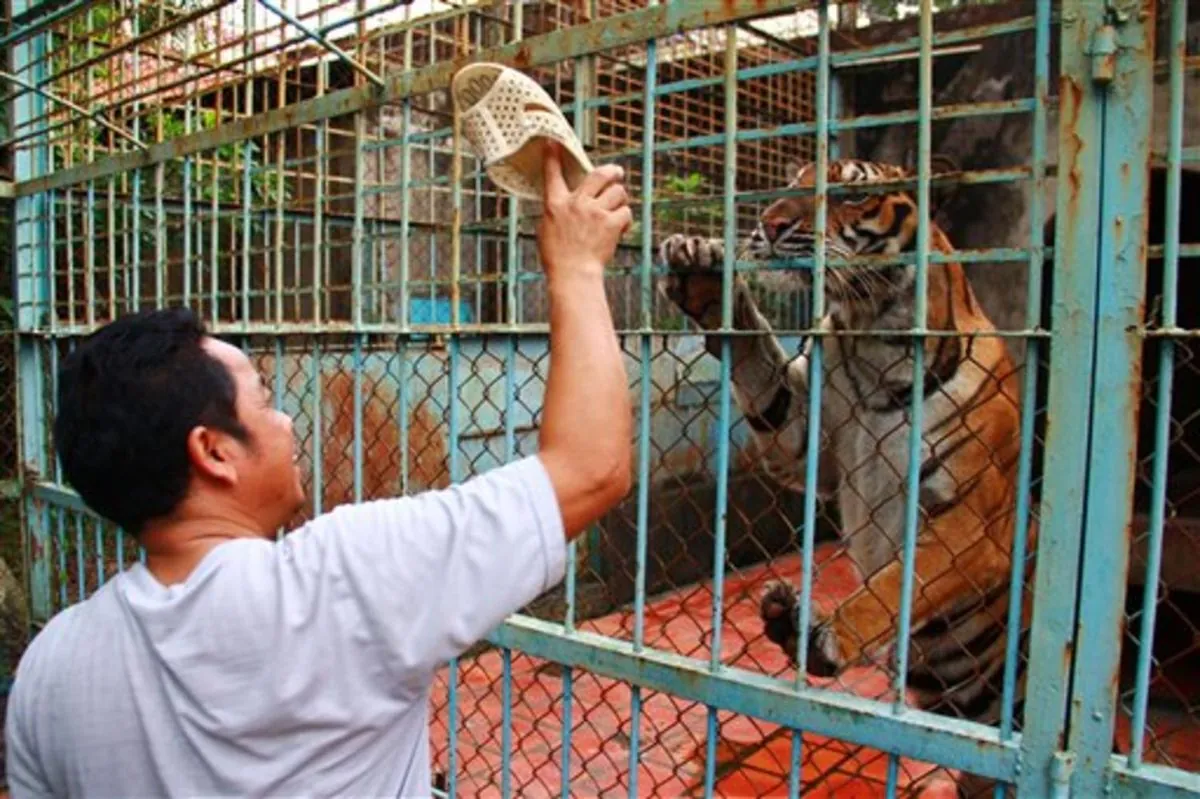In a concerning development, southern Vietnam has experienced a significant outbreak of avian influenza among captive big cats. Over the past month, dozens of tigers and lions have succumbed to the disease, prompting health officials to investigate the cause and implement preventive measures.
The H5N1 strain of bird flu, a highly pathogenic avian influenza virus, has been confirmed in samples taken from deceased tigers at Mango Garden Resort in Dong Nai province. This particular strain first emerged in humans in Hong Kong in 1997 and has since been closely monitored by health organizations worldwide due to its high mortality rate in infected individuals.
At Mango Garden Resort, 20 tigers have died since early September 2024. In neighboring Long An province, part of the Mekong Delta region, My Quynh Safari reported the loss of 27 tigers and 3 lions between September 6-18, 2024. These numbers highlight the rapid spread and devastating impact of the virus on captive big cat populations.
Phan Van Phuc, an official from Dong Nai province's Centre for Disease Control, stated that the tigers at Mango Garden Resort had been fed chicken prior to their deaths. Authorities are now tracing the source of the poultry to determine the origin of the infection.
The outbreak raises significant concerns about biosecurity measures in animal facilities and the potential for disease transmission between species. Tigers, the largest living cat species, and lions, the second-largest, are often part of captive breeding programs aimed at conserving these endangered big cats. However, the current situation underscores the challenges faced by zoos and wildlife parks in disease control.
Vietnam's tropical climate may contribute to the rapid spread of diseases like avian influenza. The country has previously reported human cases of bird flu and has implemented various measures to control outbreaks. This recent incident highlights the ongoing health challenges faced by the global wildlife tourism industry.
The World Health Organization (WHO) continues to monitor avian influenza outbreaks globally and has issued warnings about consuming raw or incompletely cooked meat and eggs from regions experiencing such outbreaks. Proper cooking temperatures can effectively kill the avian influenza virus, reducing the risk of transmission to humans.
As the situation unfolds, health officials and wildlife conservationists are working to prevent further spread of the virus and protect both animal and human populations. The incident serves as a reminder of the importance of stringent health protocols in wildlife facilities and the need for continued vigilance against zoonotic diseases.
"Consuming raw or incompletely cooked meat and eggs from regions experiencing avian influenza outbreaks poses a high risk of infection."
This outbreak not only impacts the captive big cat population but also raises concerns about potential human-to-human transmission of avian influenza. As the virus continues to spread to various mammalian species worldwide, including cows, dogs, cats, and even dolphins, researchers are closely monitoring its evolution and potential for further mutations.
The incident in Vietnam serves as a stark reminder of the interconnectedness of animal and human health, emphasizing the need for a One Health approach in addressing such outbreaks. As investigations continue, authorities are likely to implement stricter biosecurity measures and enhance surveillance efforts to prevent future occurrences and protect both wildlife and public health.
